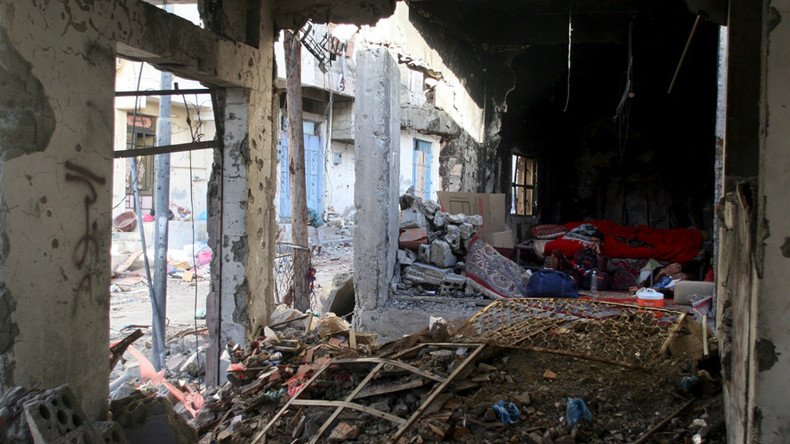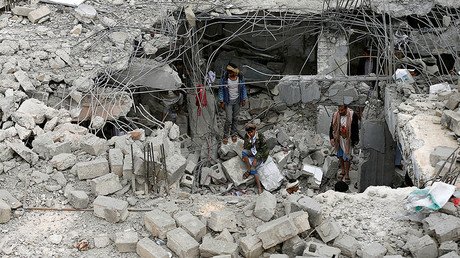British cluster bombs used in Saudi Arabia’s Yemen campaign

British Defense Secretary Michael Fallon has confirmed that British-made cluster bombs were used by Britain’s theocratic ally Saudi Arabia in its war against the Houthi rebel movement in Yemen.
Fallon addressed the controversial findings of the British government’s own inquiries in the House of Commons Monday, saying that while the UK has not supplied such weapons to Saudi Arabia since 1989, there were British-made cluster mutations dropped in Yemen during the conflict.
“That investigation has now concluded. The coalition confirmed earlier today that a limited number of BL-755 cluster munitions exported from the United Kingdom in the 1980s were dropped in Yemen, including in the incident alleged by Amnesty International not far from the Saudi border by a coalition aircraft,” said Fallon.
Also on Monday, the Saudi-led Arab coalition said that after 20 months of war it will stop its use of British-made cluster munitions in Yemen.
“The government of Saudi Arabia confirms that it has decided to stop the use of cluster munitions of the type BL-755 and informed the United Kingdom government of that,” said the Saudi statement, carried by state news agency SPA.
The new details have emerged through a leak to the Guardian from sources which claim that internal investigations support claims in the media that the outlawed munitions are in use.
The source said that the findings had been known by the government for up to a month.
However, the paper has also been told that Saudi Arabia – a major UK ally and one of its top arms customers – has not confirmed itself that the banned munitions are being used.
The revelations seem set to pile even more pressure on the UK to stop selling arms to the authoritarian regime.
The UK is a signatory to the 2010 treaty banning cluster munitions, which drop many tiny bomblets from the main device and can create what is in effect a minefield.
A senior defense source told the Guardian that the issue had been “raised at the highest possible levels and we have been trying to establish definitively for some time [if cluster bombs have been used].”
The "highest levels" are said in this case to include Defence Secretary Michael Fallon.
In statement Monday after a spokesman for the military said: “The Government takes such allegations very seriously.
"We have analysed the case carefully using all available information, considering all possibilities, and raised the issue with the Saudi-led coalition.”
Late on Monday afternoon the Saudi government released a statement saying it would stop using British cluster munitions.
It said that the 'Arab coalition' had been using the older UK-made BL-775 to protect its borders.
"The government of Saudi Arabia confirms that it has decided to stop the use of cluster munitions of the type BL-755 and informed the United Kingdom government of that," a spokesperson said.
UK military embedding
The UK has also been involved in training Saudi forces in air warfare skills and artillery, it emerged in 2016. Royal Air Force (RAF) personnel are also embedded in Saudi operations headquarters.
It was reported in April that courses were being run by RAF officers as recently as 2015 on ‘international targeting’ over three separate three-week blocks.
This included training on the Storm Shadow missile, which is launched from aircraft to destroy enemy bunkers.
Gunnery instruction on targeting and locating enemy gun batteries was also carried out by a seven-strong detachment of personnel from the Royal Artillery.
The artillery team delivered 52 hours of training to Saudi gunners and included a senior major, a captain, a sergeant major and a sergeant.
The Ministry of Defence (MoD) said the course had been delivered to “a mixed group of soldiers and officers” from the Royal Saudi Land Forces (RSLF) field artillery.
The military said its personnel were not involved in “carrying out strikes, directing or conducting operations in Yemen or selecting targets, and are not involved in the Saudi targeting decision-making process.”













